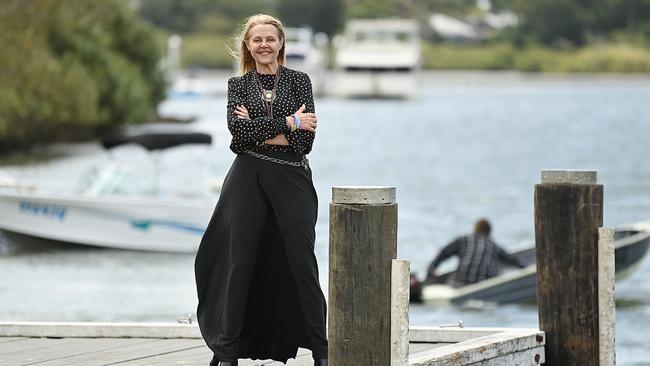Queensland election: Queenmaker Sandy Bolton lauds ‘coast with the most’
Sandy Bolton became the independent member for Noosa at the last state election, and is counting on this and her incumbency to get her home again.

Sandy Bolton captured the growing vote of conservatives who are interested in environmental issues to become the independent member for Noosa at the last state election, and is counting on this and her incumbency to get her home again.
Should she be returned, Ms Bolton may find herself in the position of queenmaker in the event of a hung parliament, having to choose between Annastacia Palaszczuk and Deb Frecklington to become premier.
Ms Bolton says should that happen, she will make up her mind about who to support only after the election.
“There have been no discussions online, offline or anywhere,” she said. “It might be different after the election.”
Noosa has traditionally been a conservative seat, but Ms Bolton has voted with the ALP 53 per cent of the time and 47 per cent with the LNP. She has also backed contentious legislation proposed by the Labor government.
She supported reform of the abortion laws, which were passed in this term of government, and has been a strong supporter of euthanasia reform, which is due to go before parliament in March.
She indicated to The Australian that she would be supporting changes to the euthanasia laws.
Earlier this year, she had a very public coffee with Ms Palaszczuk at Tewantin in her electorate. But she said that while it was a pleasant morning, there had not been any discussion of her support or otherwise for the government.
She also said that she hadn’t heard from Ms Frecklington or anyone else in the LNP, and complained that shadow ministers came into the Noosa electorate without telling her.
“I know it was an LNP seat and they’re very keen to get it back but when they come here, they never let me know or invite me to any functions,” she said.
“Government ministers let me know when they’re coming. That is the appropriate protocol to follow and I appreciate that.”
Noosa has changed dramatically in the past 30 years, from being a small but high-value tourism area with a large rural component, to being largely residential, flooded with retirees who largely bring both conservative political attitudes plus a high regard for environmental issues.
While many of these retirees are self-funded, there has also been a build-up of young people with families, but the problem they face is getting a good job in what is a low-wage area.
Figures from Griffith University show that the median age in Noosa is 47, while it is 38 nationally and 37 in the rest of Queensland. The median weekly income in Noosa is $617, while in the rest of Queensland it is $660, and $662 nationally.
The Sunshine Coast has very few large employers, and its economy is based largely around small businesses servicing either the construction or tourism industries. Employment in the area fell 4.3 per cent between March and September, one of the highest regional drops in Queensland.
But the environment is an overarching part of the Noosa experience, and Ms Bolton’s supporters in Noosa wear teal T-shirts to show their status as “teal Greens”, a cross between a conservative blue and a Greens green.
In 2017, she won Noosa by beating the LNP incumbent on the primary vote and picking up the preferences of the ALP, Greens and a good deal of One Nation to win the seat. She is hoping to do the same again.
“COVID-19 has shown that people can work from home. That could be good for us — who wouldn’t want to live in Noosa when you can work here as well?,” she said.



To join the conversation, please log in. Don't have an account? Register
Join the conversation, you are commenting as Logout